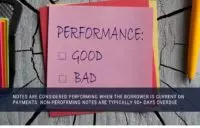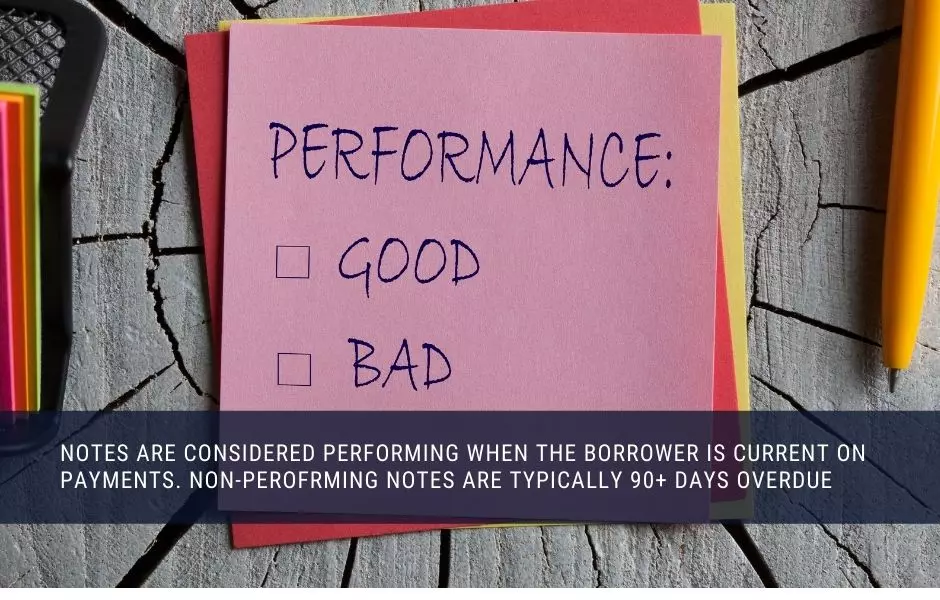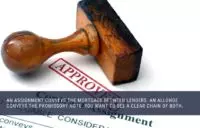Real estate notes, what are they, and why should you care? In this article, we'll delve into the world of real estate notes, exploring their definition, purpose, and investment potential. So, let's get started!
What Are Real Estate Notes?
Notes surround us in various forms every day. From car finance and student debt to personal loans and dollar bills, all these credit agreements utilize notes. In essence, a note is an IOU, representing an agreement between a borrower and lender. Real estate notes specifically use a piece of property as collateral for the loan.
 Image: A note and a mortgage are two separate parts of one transaction.
Image: A note and a mortgage are two separate parts of one transaction.
Each real estate note consists of two parts: a promissory note and a lien. The promissory note outlines the loan's terms, while the lien, usually a mortgage deed or deed of trust, is recorded against the property's title in the county land records.
The Promissory Note
The terms of every promissory note differ, established between the parties when the loan originates. However, at a minimum, it should include essential details such as the loan amount, monthly payment, origination and maturity dates, loan term, interest rates, and addresses of both the borrower and lender.
Moreover, the promissory note often contains waiver clauses that both parties agree upon. These clauses may cover various aspects, including notice, demand, acceleration, protest, and foreclosure proceedings.
 Image: Performing notes generate monthly income.
Image: Performing notes generate monthly income.
Performing vs Non-Performing Real Estate Notes
When considering real estate notes as an investment, it's crucial to understand the distinction between performing and non-performing notes.
Performing notes refer to loans where all payments are current and up to date. These are attractive to investors seeking regular monthly income, especially in low-interest rate environments or volatile financial markets. Depending on risk factors, real estate notes can provide a great monthly income with rates of 8% p.a. or higher.
On the other hand, non-performing notes arise when borrowers stop making payments. These notes are often sold by lenders at a discount to recover some funds and avoid lengthy foreclosure proceedings. Savvy note investors purchase these non-performing notes, aiming to renegotiate terms or balance with borrowers to create a profitable reperforming note.
Mortgages and Deeds of Trust
Separate from the promissory note, a lien, typically a mortgage or deed of trust, is recorded against the property's title. This gives the lender the right to claim ownership of the real estate if the borrower defaults on the note's terms.
When considering buying a real estate note, it's essential to review the mortgage or deed of trust. Look for critical information such as due-on-sale clauses, lender recourse provisions, insurance requirements, foreclosure procedures, and accurate legal descriptions.
 Image: The Lien Provides Security for a Real Estate Note Investment.
Image: The Lien Provides Security for a Real Estate Note Investment.
Moreover, the position of your lien on the property's title determines the level of risk and potential for recouping your investment. First position liens must be settled before any other liens, while second position liens are paid after the first position has been satisfied. Other liens, such as property tax or mechanics liens, may also impact lien priority.
What are Real Estate Notes Used For?
Real estate notes serve various purposes within the real estate market. Banks and credit unions create notes when providing mortgages or second mortgages to homeowners. Private and hard money lenders originate real estate notes to lend money to real estate investors. Additionally, sellers may offer notes through seller financing when selling a property.
Buying and Selling Real Estate Notes
Real estate notes can be lucrative investments, offering monthly income with high interest rates. Performing notes are popular among passive investors seeking alternative options for their retirement funds. Non-performing notes, while riskier, offer the potential for larger profits through loan modifications or foreclosures.
 Image: Anyone can buy or sell real estate notes.
Image: Anyone can buy or sell real estate notes.
In the United States, real estate notes are freely traded on the open market, making them accessible to investors of all sizes, from large institutions to individual investors. Numerous online exchanges, note brokers, crowdfunding platforms, and private lending programs facilitate the buying and selling of real estate notes.
When purchasing or selling real estate notes, certain paperwork is required. This includes an assignment, recording the transfer of the mortgage deed, and an endorsement, documenting the transfer of the promissory note.
Buying Real Estate Notes Direct from Banks
While acquiring non-performing notes directly from banks can be an excellent source, it can be challenging to establish these connections. Building relationships with the right individuals and meeting the bank's requirements can be time-consuming and costly. Online tools like Bankprospector can aid in identifying banks selling non-performing notes.
 Image: Banks will sell off their non-performing real estate notes in 2021.
Image: Banks will sell off their non-performing real estate notes in 2021.
If approved, banks may offer a tape of non-performing loans for purchase. Due diligence must be conducted, including an analysis of the collateral file, prior to making an informed offer. It's crucial to maintain a good reputation in the note buying community, as opportunities may be limited.
Buying Real Estate Notes Online
For those seeking performing notes or lacking resources to build relationships with lenders, online platforms provide alternative options. Online exchanges, note brokers, hedge funds, crowdfunding websites, hard money lenders, private lending programs, and note investment funds offer real estate notes for sale.
 Image: Investors can buy and sell real estate notes on online exchanges.
Image: Investors can buy and sell real estate notes on online exchanges.
Whether you choose to buy from individual sellers on note trading platforms or through established programs, real estate notes offer opportunities to diversify investments and achieve attractive returns.
In conclusion, real estate notes present a unique investment avenue, providing monthly income and potential profits. Understanding the intricacies of notes, mortgages, and lien positions enables investors to make informed decisions and maximize their returns. So, explore the world of real estate notes and unlock the potential they offer.









